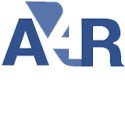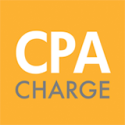Schedule a meeting online
Book sessionSelf-Employment Tax on Airbnb Rental Income
By: Ernie Neve
But before we get to what the IRS said, understand that the CCA’s conclusions cannot be cited as precedent or authority by others, such as you or your tax professional.
Even so, we always consider what the CCA says as semi-useful information, so here’s some analysis that goes beyond what the IRS came up with.
The Exact Question
To be specific, the CCA asks whether net income from renting out living quarters is excluded from self-employment income under Section 1402(a)(1) of our beloved Internal Revenue Code when you’re not classified as a real estate dealer.
If excluded under IRC Section 1402(a)(1), you don’t owe self-employment tax on your net rental income. Needless to say, that’s the outcome you want to see, and I’m here to help.
The taxpayer addressed in this CCA was an individual who owned and rented out a furnished beachfront vacation property via an online rental marketplace (such as Airbnb or VRBO).
The taxpayer provided kitchen items, linens, daily maid service, Wi-Fi, access to the beach, recreational equipment, and prepaid vouchers for ride-share services between the rental property and a nearby business district.
The CCA’s Conclusions
According to the CCA, when you’re not a real estate dealer, net rental income from renting out living quarters is considered rental from real estate and is therefore excluded from self-employment income—as long you don’t provide services to rental occupants.
The self-employment income exclusion for net rental income collected by a non-dealer is a statutory provision. The statute itself doesn’t say anything about providing services.
But IRS regulations state that providing services to renters can potentially cause you to lose the exclusion from self-employment income.
According to the CCA, you must include the net rental income in calculating your net self-employment income—which could cause you to owe the dreaded self-employment tax (ugh!)—if you provide services to renters and the services
are not clearly required to maintain the living quarters in a condition for occupancy and
are so substantial that compensation for the services constitutes a material portion of the rent.
So, according to the CCA, determining whether providing services to renters will trigger exposure to the self-employment tax is the big issue for folks who rent out living quarters.
The CCA’s anti-taxpayer conclusion rests on the giant assumption that the services provided by the taxpayer were above and beyond what was required. But were they? Probably not!
The Customarily Issue
According to IRS regulations, services are generally considered above and beyond the norm only if they exceed the services that are customarily provided to renters of living quarters.
Therefore, services that simply maintain a vacation rental property in a condition that is customary for rental occupancy should not be considered above and beyond and therefore should not trigger exposure to the self-employment tax.
In assessing whether services provided to renters are above and beyond what’s customary, circumstances obviously matter.
In the real world of vacation rentals in expensive resort areas, renters customarily expect and receive lots of services that might be considered above and beyond in other circumstances.
For instance, in resort areas, renters customarily expect and receive cable service; Wi-Fi access; periodic housekeeping services, including changing bedding and towels; repair of failed appliances; replacement of burned-out lightbulbs; replacement of dead smoke alarm batteries; access to recreational equipment such as bicycles, kayaks, beach chairs, umbrellas, and coolers; and so forth and so on. That’s a lot of services!
Why are lots of services provided in expensive resort areas? Because rental charges in expensive resort areas are—wait for it—expensive! The cost may be $2,000 or more per week or $5,000 or more per month, or even higher during peak periods—maybe much higher! So, rental amounts that could be attributed to the provision of all the aforementioned services would almost always be a small fraction of the overall rental charges.
In the context of expensive resort area vacation rentals, it’s hard to imagine what services would be so above and beyond the norm that the property owner’s net rental income would be exposed to the self-employment tax.
It shouldn’t matter if the services are provided directly by the owner of the property (unlikely) or indirectly by a rental management agency and included as part of the fee paid by the owner of the property (likely).
The Substantiality Issue
In assessing whether services provided to renters are above and beyond the norm, substantiality also matters.
A Tax Court decision addressed a situation where the taxpayer rented out trailer park spaces and furnished laundry services to tenants. The laundry services were clearly provided for the convenience of the tenants and not to maintain the trailer park spaces in a condition for rental occupancy. Tenants were not separately billed for the laundry services, and they were not separately paid for.
The Tax Court concluded that any portion of the rental payments that was attributable to the laundry services was not substantial enough to trigger exposure to the self-employment tax. Accordingly, the Tax Court opined that all of the trailer park owner’s net rental income was excluded from self-employment income.
As stated above, in the context of the rental of expensive vacation properties, any portion of rental charges that could be attributed to the provision of services would likely be insubstantial in relation to the overall rental charges. If so, according to the Tax Court, the provision of such services would not expose the property owner to the self-employment tax.
If you would like to discuss your rental property and your exposure to the self-employment tax, please call me on my direct line at 610-278-8400.





